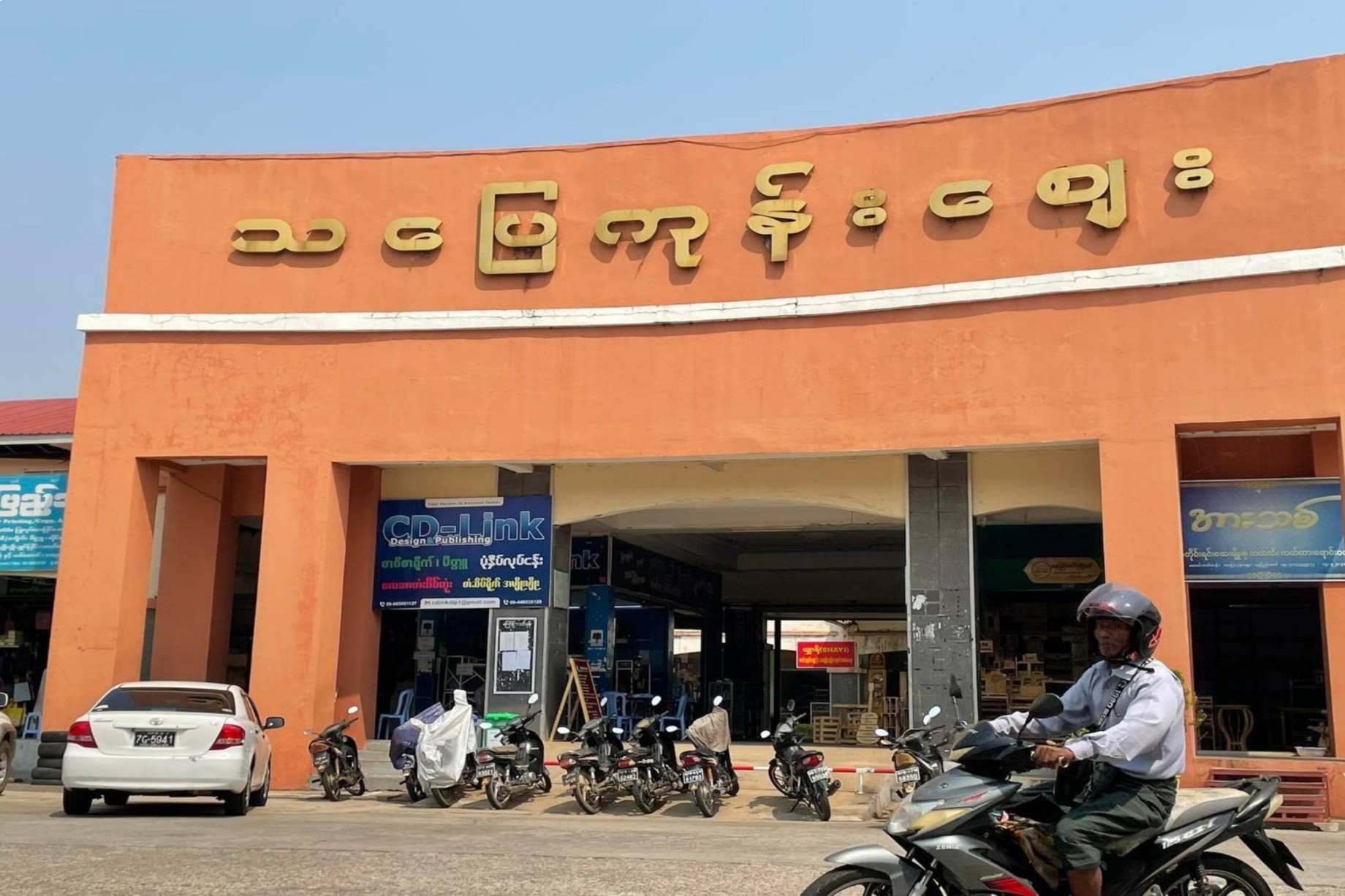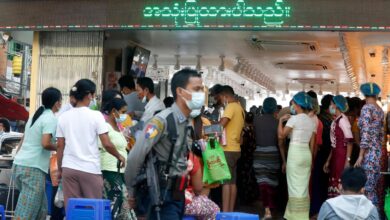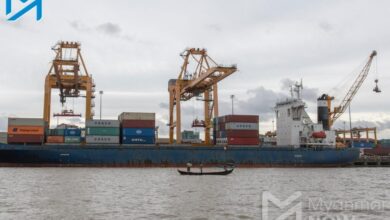
A regime-owned bank in Naypyitaw, Myanmar’s administrative capital, has threatened to sue eight business owners for failing to repay loans totalling more than 2bn kyat (nearly US $1m).
In an announcement on Wednesday via regime-run newspapers, the Naypyitaw Development Bank (NDB)—which is owned by the Naypyitaw municipal council—said that the bank’s loans to small and medium enterprises were financed by a loan from Japan International Cooperation Agency (JICA). It is unknown when the bank made the loans.
The NDB alleges that the owners of eight different businesses have failed to make payments on the principal, interest, or insurance premiums for the loans, and have not responded to communications from the bank.
The announcement provided the names and addresses of the borrowing businesses, which include restaurants, a silk garment shop, a pharmacy, and a clinic, with six based in Naypyitaw and the other two in Mandalay.
Some of the business owners told Myanmar Now that the Covid-19 pandemic, combined with the military coup of 2021, made it impossible for them to keep their businesses running and repay the loans.
One owner, who requested anonymity, stated that he has been making regular interest payments, but not according to the agreed schedule, blaming the economic troubles created by the coup and pandemic.
Another businessman in Mandalay, who distributes and sells textiles, said he had failed to repay his debt due to social turmoil following clashes between anti-junta resistance forces and army troops in nearby Sagaing Region, which brought his business to a halt.
Various groups have mounted a forceful armed resistance against the regime that seized power in a coup two years ago. The military’s subsequent campaign of violence in Sagaing has reduced hundreds of villages to ashes and displaced tens of thousands of local residents.
The textile seller said he made advance payments for some of the merchandise he bought from businesses in Sagaing, but due to the armed conflict, he had lost touch with his usual business contacts in the region and his ability to make further procurements.
“My business has stopped completely. I used bank loans to pay advances to my suppliers, but most of them were in Sagaing Region, and I can no longer reach them because they have fled the area,” the businessman said.
The 2021 military coup and its aftermath impacted many businesses, with over 300 declaring bankruptcy throughout the country last year.
“One of the main reasons [for the bankruptcies] is bank loans. Since many businesses are not up and running, they have failed to repay their loans,” said a businessman who owns a customs clearance service company in Yangon who asked not to be named.
He attributed the businesses’ woes to difficulties in withdrawing funds from banks, tightened trade regulations, frequent power blackouts, and a volatile currency exchange market. These circumstances, which have worsened since the coup, have had the greatest effect on small and medium-sized businesses, he added.



